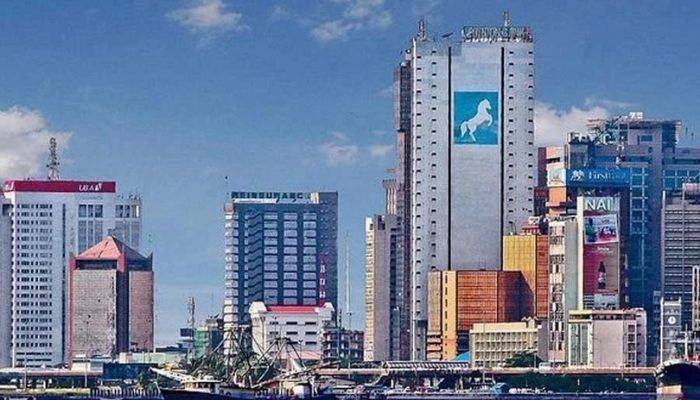Amid tight monetary policy and economic contractions, the loan portfolio of Nigeria’s main deposit money banks increased by 57% to N37.17 trillion in 2023, up from N23.68 trillion in 2022.
Access Bank, Zenith Bank, First Bank, Guaranty Trust, United Bank for Africa (UBA) Plc, Fidelity Bank, GT Bank, Stanbic IBTC, Sterling Bank, Wema Bank, and FCMB all contributed significantly to the high credit growth.
Details from the loan books revealed that tier-1 banks dominated the combined portfolio, with the highest value and growth rates. Access Bank has the largest loan portfolio, at N8.04 trillion, followed by Zenith Bank with N6.56 trillion and First Bank with N6.36 trillion.
United Bank for Africa (UBA) Plc expanded its loan book to N5.23 trillion, while Fidelity Bank Plc, a tier-2 bank, entered the big five bracket with a loan size of N3.09 trillion, pushing GT Bank to sixth place with N2.48 trillion.
Another tier-2 bank, Stanbic IBTC Bank, led the sector growth rate with a 68.6 percent rise in its loan book to N2.03 trillion in 2023, followed by a tier-1 bank, First Bank, with a 68 percent increase, and UBA, which ranked third with a 66.7 percent increase.
Agusto & Co, a financial analyst firm, said in a 2023 Banking Industry Report that banks used the increased liquidity caused by the elimination of ‘arbitrary’ cash reserve ratio (CRR) debits to expand their loan books.
The firm’s study stated: “Following President Tinubu’s inauguration, the new administration has initiated many reforms aimed at addressing prevailing macroeconomic imbalances. The reforms, which include the removal of the petrol subsidy, currency rate harmonisation, tax reforms, and the reintroduction of a rigorous framework for calculating cash reserve requirements (CRR), give chances for growth in the industry.
“For example, we expect that many banks will take advantage of increased liquidity following the elimination of arbitrary CRR debits to expand their loan books, particularly if businesses’ working capital needs continue to rise due to the weakening home currency and other inflationary pressures.
“We anticipate that the new loan disbursements would mostly benefit established industries like as manufacturing, oil and gas, and general commerce, as well as resilient businesses within the uncertain operating environment.

Banks
New areas such as renewable energy, health, and gender-based enterprises will also grow. According to analysts at Cardinalstone, an investment banking business, “This credit growth was largely driven by the impact of currency devaluation on banks’ foreign currency loans.” We believe that 2024 would be a year of credit growth correction due to the country’s ongoing macroeconomic challenges.
“Banks are likely to maintain tight credit lending practices, focusing on more creditworthy sectors and borrowers. As a result, we project full-year loan growth in 2024 to return to the four-year average of 19.9%.”
Source: vanguardngr.com










